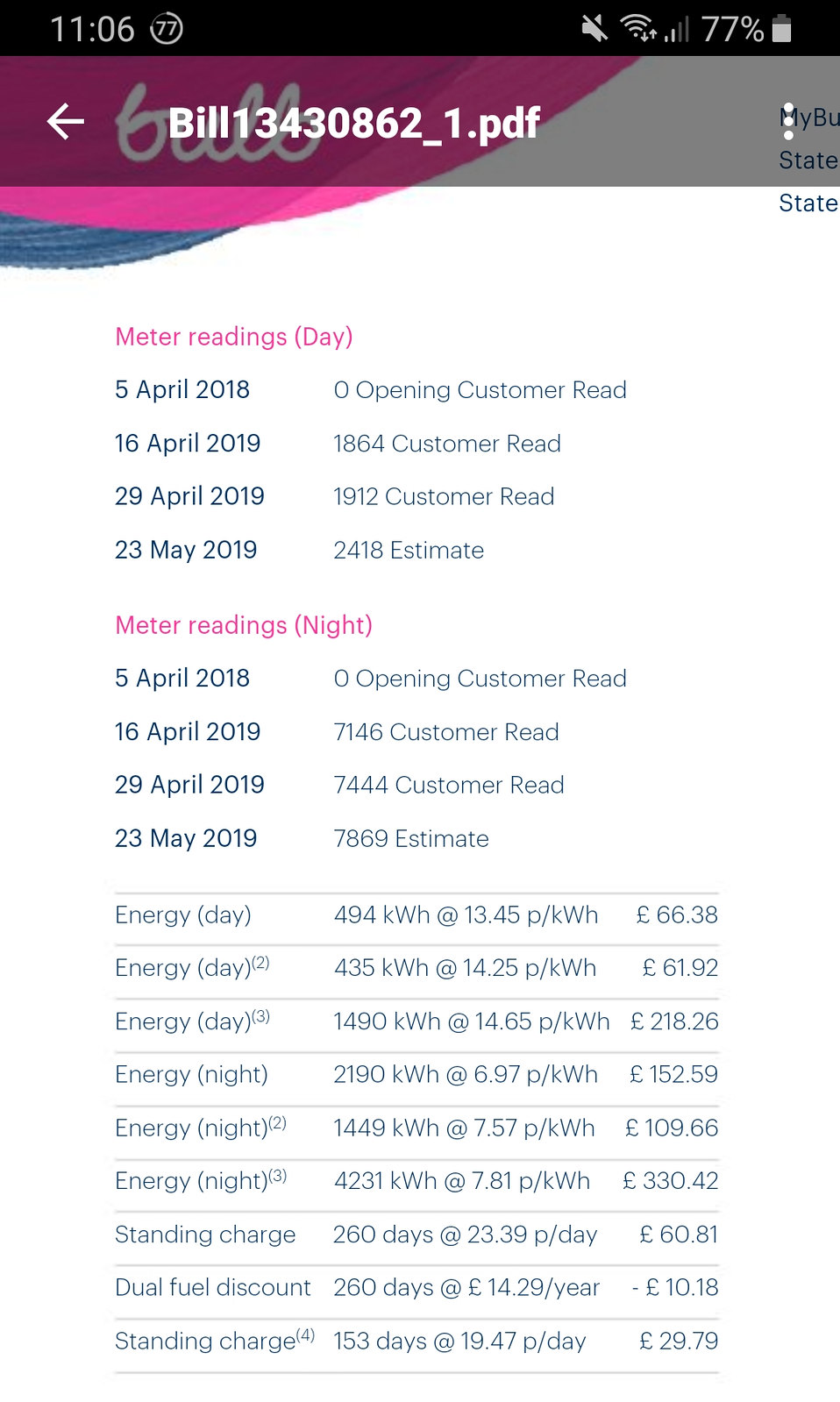Just watch out for the increased standing charge on the Octopus tarrif vs their other ones.
I've been with Octopus for 3 years or so, and, like others, their standing daily charge changes between tarrifs. We are currently on 16.something pence per day (+5% vat) for both elec and gas, but I've seen it pushing nearly 30p day on some tarrifs. Octopus Go is currently 25p/day (inc VAT) but about the same peak rate as I am currently on, but with a smart meter, who knows how much that will be in the future when you are cooking evening meal... suggest people read up about demand side response and what the future of smart energy pricing may bring - its not a bad thing so long as you know the consequences, which is something that is being well and truly hidden from people by the smart meter marketing campaigns - one has to wonder why its not being openly talked about...
I've not done the man maths yet and wont until I've seen some usage patterns when we get the car. But roughly 4 hours @5p * 7kWh + 25p = £1.65 but without changing, its 4 hours @15p * 7kWh + 16p = £4.36 which on paper looks to be no contest, but only if charge 7kWh every day, which we won't. Say 4 * 7kWh (28kWh) gets us 110 miles (as I say, man maths), thats a weeks commuting for us, so we are going to charge say once a week for 4 hours at 5p/hr. So as you start spreading charging to a weekly charge, the maths become 4 hours @ 5p * 7kWh + (25 * 7) = £3.15 vs 4 hours * 7kWh @ 15p + (16 * 7) = 5.32 a difference of £2.17 per week. Yes, it is cheaper, but I'm not sure for less than the price of a weekly coffee, I'm in too much of a rush to change to smart metering without seeing real numbers and options - which as a solar micro generator, I have lots of numbers going back many years. ymmv.



